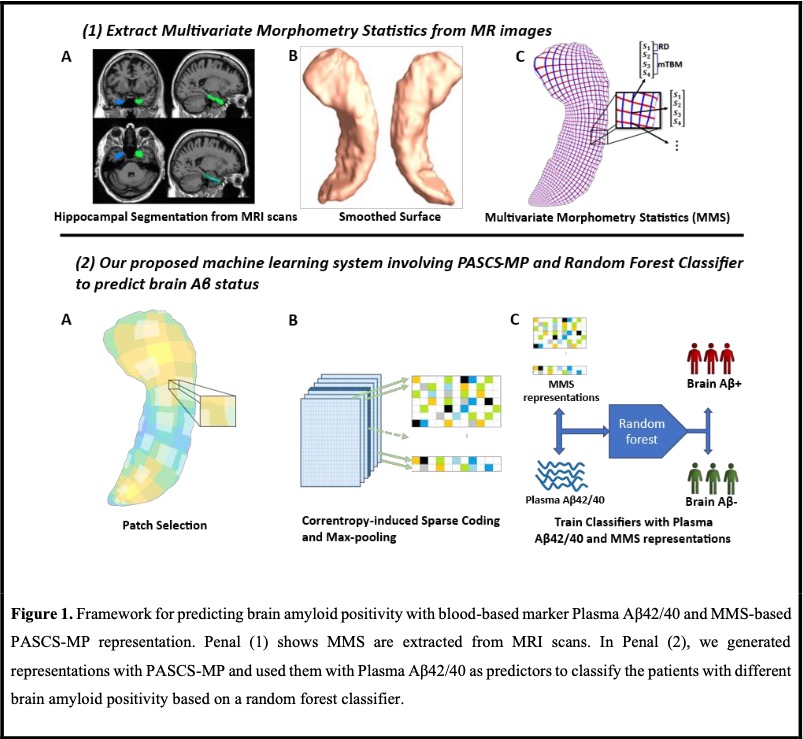Combining Blood-Based Biomarkers and Structural MRI Measurements to Distinguish Persons With and Without Significant Amyloid Plaques
Yanxi Chen, Yi Su, Jianfeng Wu, Kewei Chen, Alireza Atri, Richard J Caselli, Eric M. Reiman, Yalin Wang, for the Alzheimer’s Disease Neuroimaging Initiative
Background: Amyloid-β (Aβ) plaques play a pivotal role in Alzheimer’s disease. The current positron emission tomography (PET) is expensive and limited in availability. In contrast, blood-based
biomarkers (BBBMs) show potential for characterizing Aβ plaques more affordably. We have previously proposed an MRI-based hippocampal morphometry measure to be an indicator of Aβ-
plaques.
Objective: To develop and validate an integrated model to predict brain amyloid PET positivity combining MRI feature and plasma Aβ42/40 ratio.
Methods: We extracted hippocampal multivariate morphometry statistics (MMS) from MR images and together with plasma Aβ42/40 trained a random forest classifier to perform a binary classification of participant brain amyloid PET positivity. We evaluated the model performance using two distinct cohorts, one from the Alzheimer’s Disease Neuroimaging Initiative (ADNI) and the other from the Banner Alzheimer’s Institute (BAI), including prediction accuracy, precision, recall rate, F1 score and AUC score.
Results: Results from ADNI (mean age 72.6, Aβ+ rate 49.5%) and BAI (mean age 66.2, Aβ+ rate 36.9%) datasets revealed the integrated multimodal (IMM) model’s superior performance over 50 unimodal models. The IMM model achieved prediction accuracies of 0.86 in ADNI and 0.92 in BAI, surpassing unimodal models based solely on structural MRI (0.81 and 0.87) or plasma Aβ42/40 (0.73 and 0.81) predictors.
Conclusion: Our IMM model, combining MRI and BBBM data, offers a highly accurate approach to predict brain amyloid PET positivity. This innovative multiplex biomarker strategy presents an accessible and cost-effective avenue for advancing Alzheimer’s disease diagnostics, leveraging diverse pathologic features related to Aβ plaques and structural MRI.
